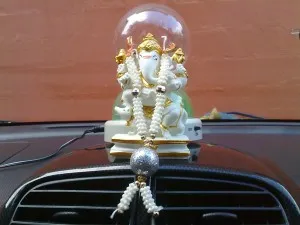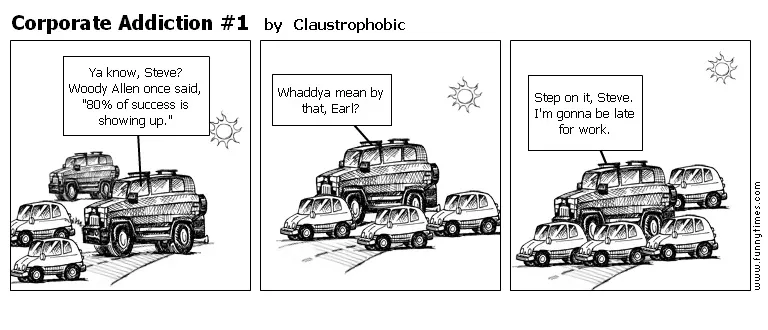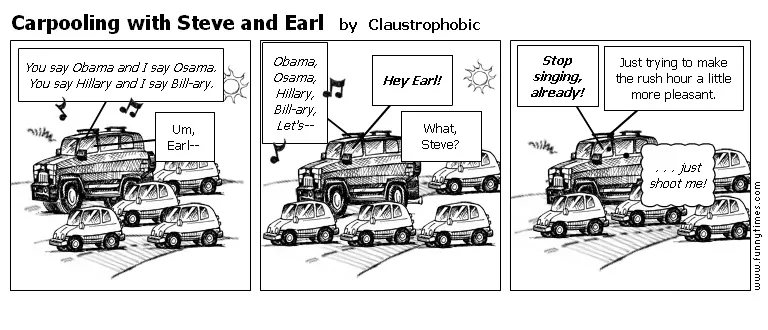The idea of carpooling is deceptively simple.
Four people travel the same way to work every day. Each drives his own car. Why should they not travel in one car instead? They can switch between cars every day, so that each one drives one day and get three days as a passenger. They save money on fuel, feel less fatigued on the passenger day, and generally feel much happier in life. And yes, they do their bit for the environment by saving on fuel emissions.
So, what’s stopping them from doing it?
A raft of startups think that it is a problem waiting for a solution. Build the right means for them to interact, and people will carpool. There’s no logical reason for them not to, after all.
Many young companies have built carpooling apps and services. These apps hook you up with people traveling your way and calculate how much money each has to pay the other. Some even have blessings of traffic police as a means to reduce congestion on roads.
You may see an initial enthusiastic bunch of people who swear by their service. You may also see companies promoting them enthusiastically for a while. Then interest will fade.
Sorry guys. Carpooling will never go mainstream. You can build the best technological solutions but the concept will still not work.
The reason has nothing to do with technology. It’s just consumer behavior.

Think of what most Indians do when they first buy a car. Many of us first drive down to a temple and get a pooja done. We put a teeka on the vehicle and install a small deity on the dashboard or dangling from the mirror.
Most of us never remove the plastic sheets wrapping car seats so that it looks fresh, notwithstanding that it makes the car extremely uncomfortable to sit in in the climates we drive in.
Despite the chaos on the roads, we get ballistic when someone on the road lightly bumps or scratches the car.
Why such emotional investment in a vehicle?
The answer lies in what owning a car represents.
A vast majority of Indians can afford a car only in the realm of dreams. For those who can, the car is usually the second most expensive possession they own (after a house). Ghar and gaadi have always been associated with having made it in life.
Owning a car means that we no longer have to rely on unreliable public transport and are master of our own fates. It makes us feel as if we own the road, and everyone else is just a hindrance to honk away (maybe that’s why we Indians are terrible when it comes to following rules on the road).
When driving, we kowtow to no other vehicle, be it a bicycle or a truck. We use our car horns as weapons to disperse obstacles in front. The only authorities we bow down to when we drive is the traffic policeman who has the power to take the car away from us.
As we rise in stature, driving seems a chore. We can employ a driver who’s at our beck and call. The social status is established even in the car. The driver sits in front and drives, we lord over the rear seat.
Giving lifts to others has the same connotation. We take the trouble to oblige them; even when it costs us nothing. Sadly, even that practice is eroding. Who knows what the stranger might do to you if you let him into the car?
Back to carpooling.
Earlier, car pooling meant your dad and Verma uncle, who worked in the same office from 9 to 5, traveled together so that they could save petrol. They were reasonably good friends anyway, though your mom probably grumbled about how Mr. Verma smartly made your dad drive two days extra last month faking an excuse of illness.

Today, let’s be truthful. We hardly even know our neighbors. And more importantly, we don’t work 9 to 5 anymore. Each morning is a hustle to beat rush hour traffic. Evenings are worse. Unexpected meetings pop up just when we were planning to head back home. The boss asks us to help with a last-minute presentation. And we head back late at night, just in time for dinner.
In this context, its tempting to think that carpooling will help ease the strain of driving to work and back.
But….if I’m driving, I don’t want to feel like a driver who has to wait for someone else to leave home or finish work. I want to leave when I’m ready, not when my fellow car-pooler is. Whoever drives on the day is the dominant player. If he’s finished work on time and someone who’s traveled with him is late, the other guy has to find a way back. If he’s late and the other guy’s finished early, the car leaves when he’s done. Even if I know people I travel with, it starts feeling like a drag in a little while, so we decide to part ways.
It’s worse when it comes to strangers.
Carpooling firms may have done all the background verification about people I need to pick up along the way, but all I need is one bad experience to put me off. It could be as trivial as a guy with a weird sense of humor, a back-seat driver who’s telling me what to do on the road (me?! doesn’t he know I’ve been driving forever? I never make mistakes on the road) or even someone who’s constantly talking on the phone when he’s in my car. My car is MY space, and he’s violating it. I’m not the driver; I’m the owner of the car and I should have control over my space.

If I’m the one who’s the passenger, I want the car waiting for me exactly at the time I’m ready. If the car’s late for some reason, I’m tempted to take my car, a bus or even an auto rather than waiting on the road. If the driver’s skills aren’t great, or if the car is dirty, I start repenting I left the car behind. If the driver’s always on the phone when he’s driving, or keeps throwing trash on the road, I start wondering how to react. Say he’s not taken the plastic cover off his seat and has not turned on the AC - what do I do? He’s not a friend that I would excuse such a behavior, nor my car driver who I could chastise. What if there's an accident and I need to intervene?
Let’s admit it. We meet new people and make friends when the context is social. Another friend introduces us, we meet someone at work or share a smoke together. We wouldn’t make friends while driving a car, would we?
Lastly, many countries abroad have special lanes that let car-poolers pass the rush. Some even have dedicated parking spaces. These might make the ride worth it. There's no such provision on Indian roads.
Many of these problems are not ones that even the best technology can solve. We undermine how important these are. But these are the very problems that will sound the death-knell for carpooling.
The author can be reached at @shrinathv or at [email protected]. Views are his own.







